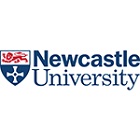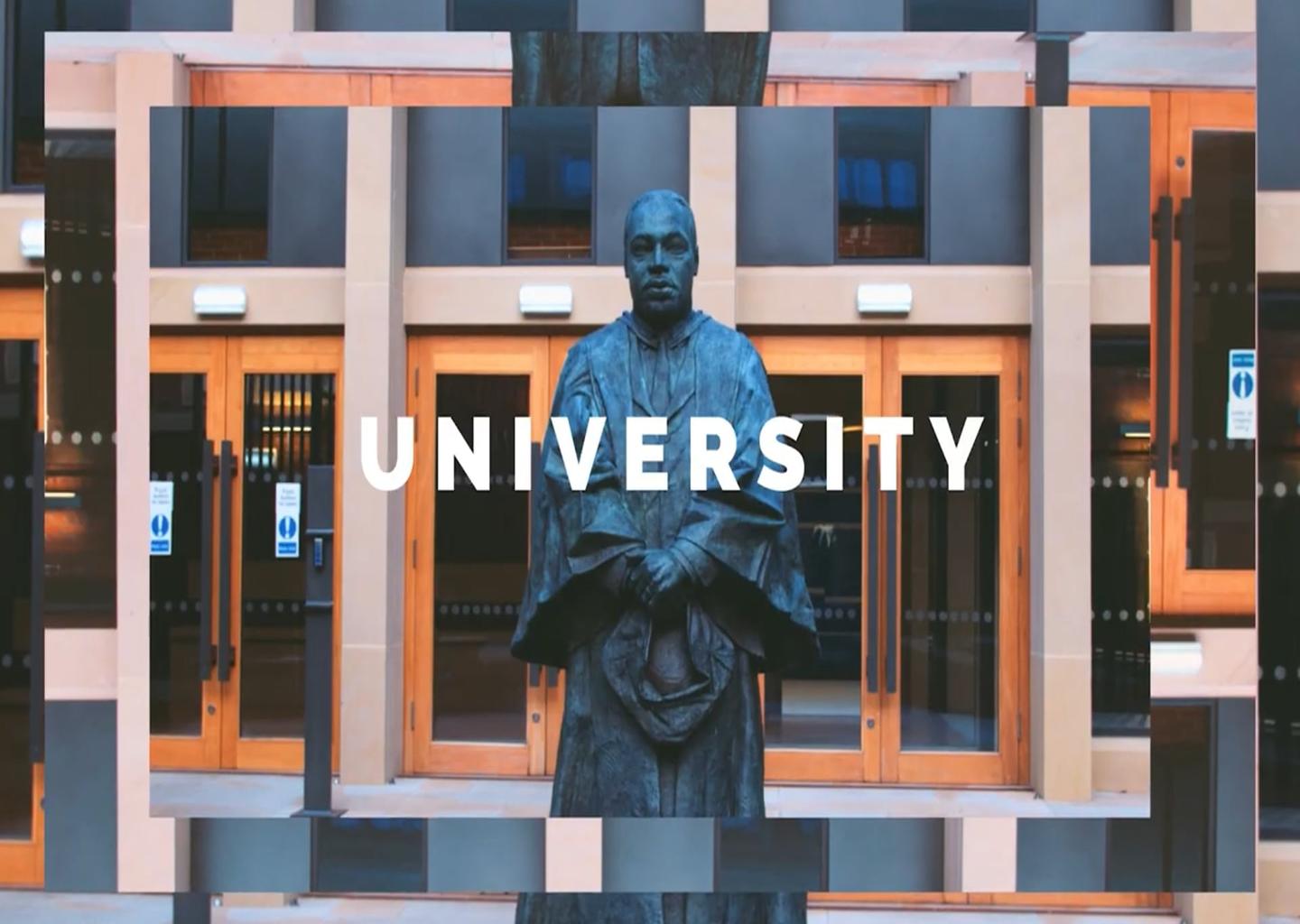
Want to study at Newcastle University?
We can help you with your admission process. Fill out details below for your FREE consultation.

Established in 1834 to provide an education to the pioneers of the industrial revolution, Newcastle University has nurtured, and continues to nurture, generations of students on their journey to making a mark on society as engineers, educationalists, creative practitioners and in many more capacities.
Newcastle University is a member of the Russell Group, a group of elite research institutions in the UK, and is widely acknowledged as a top research-intensive university, with a global reputation that is reflected in world rankings – a 5-star rating for employability in the latest QS rankings and among the top ten in the UK for graduate prospects.
The university’s 50-acre campus in the centre of Newcastle city is a hub for teaching, research and collaboration. Newcastle University is home to the UK’s National Innovation Centre for Data, the National Centre for Energy Systems Integration, the National Innovation Centre for Rural Enterprise, and the National Innovation Centre for Ageing.
The university’s strong links with industry help keep the curriculum and teaching methods relevant and contemporary. Award-winning facilities, academic and otherwise, further enhance the living and learning experience for students.
Newcastle is committed to its aim of being a sustainable campus. Besides encouraging students and staff to adopt a sustainable lifestyle, the university has urged action on climate change and other environmental challenges, such as Sustainable Water, Food Security, Global Ageing, and Resilient Cities to name a few, which also form the focus of research undertaken on campus.
Students also have abundant social opportunities in Newcastle. The city offers modern conveniences, ranging from an international airport to music arenas and shopping malls, while also being a gateway to the beautiful countryside, beaches and coastlines.
2024 201
2023 201
2022 201
2025 129 19
2024 110 12
2023 122
2024 168 29
2023 139 7
2022 146
As a member of the prestigious Russell Group, graduates of Newcastle University are well prepared to enter competitive roles in research, academia or the employment industry. The university offers a rigorous and well-balanced education which make its graduates highly desirable, achieving an internationally respected qualification which can set them apart from the field.
The university has a 180-year heritage of applied research and an expanded network of partnerships with leading global organisations, as well as a global network of around 250,000 Newcastle alumni working in almost every professional sector imaginable.
There is a free and effective which is available to all students and can really make a different when seeking targeted employment positions and building an application. The department is well-resourced and open all year round.
Newcastle prepares its students for life after university and is consistently rated highly in Student Employability metrics. In 2021, the university recorded a graduate employment rate of 94 per cent, which is significantly higher than the national average, as well as the average for Russell Group institutions. The university was also among the top 20 most targeted universities according to Times Top-100 Graduate Employers 2022. In 2022, Newcastle was rated 68th globally for employer recognitions (QS Top Universities).
Newcastle University has been recognised for the quality and impact of its research output in the most recent .
In REF2021, 42 per cent of Newcastle’s research was rated as world-leading, which is an improvement on their REF2014 result of 31 per cent. Their overall research capacity has improved by 65 per cent since the 2014 assessment, which is a testament to the growing team of researchers driving the university research programme forward. The team itself has grown by 54 per cent in this time, boding well for the future of the university and its research output.
In April, the university was rated first in the UK and 8th worldwide in the Times Higher Education Impact Rankings 2022, which is a measure of the work contributed by a university to meet UN Sustainable Development Goals.
Newcastle University also rose to 122nd place globally in the 2023 QS World rankings, further cementing its place among the world’s top 150 universities due to its world class teaching and research.
26,35,106 Undergraduate Fees are for indicative purposes, for details
25,57,009 Postgraduate Fees are for indicative purposes, for details
14,54,565 Living costs
1,46,437 To live on campus
The university is committed to ensuring the financial security of students at all levels, and runs an impressive programme of scholarships, bursaries and financial awards which are open to both and students. These awards can help students cover the costs associated with tuition or their student lifestyle.
Newcastle University has one of the largest EU research portfolios in the UK, and in the 2020/21 academic year, recorded an income of over GBP 520 million, of which approximately GBP 100 million came from research grants and contracts.
There are many other types of award, including prizes for academic performance, donor funded schemes, sports awards and expedition subsidies for students continuing their academic work abroad. Prospective students are encouraged to visit the university website to check their eligibility before making an application.
As a research-oriented Russell Group university, the admission requirements at Newcastle are highly competitive. For undergraduate entry, the typical minimum requirement is ABB at A-level. The admissions team considers applications on an individual basis and accepts a wide range of qualifications and experience when making selections for placement.
Academic entry requirements will vary according to the subject being applied for and the level of study, so applicants should check the specific page for their chosen course before applying.
Newcastle University works hard to ensure that the application process remains fair and accessible to all students, and all prospective students are encouraged to . The admissions team is available to contact all year-round.
Non-native English speakers will be required to demonstrate an adequate level of proficiency, and certain courses may additionally require a small portfolio of work.
Newcastle University has an educational heritage of more than 180 years, and in this time has developed an impressive curriculum, both in terms of breadth and quality, and operates with an extremely high standard of teaching. The university holds the QAA Quality Mark, which represents a nationally recognised standard of learning and tuition. Newcastle is a university which prepares its students for successful careers after graduation and, in particular, the QAA give high praise to the range of methods by which student employability is developed within the curriculum.
Many undergraduate courses are rated within the top 20 in the UK, with several consistently ranked among the top ten, including Art and Design, Linguistics, Architecture, Medicine and Dentistry.
The teaching faculty is comprised of highly qualified academics, many of whom have international experience and significant industry insights, which they may readily impart to their students. Students receive plenty of contact time and individual attention, creating a personalised learning experience. The teaching faculty represent a very high academic standard, with nine of Newcastle’s academic team receiving a in recognition of individual excellence.
Newcastle University has a total enrolment of around 29,000 students and well over 650 and degree courses to choose from. These courses are distributed across the following three academic faculties:
The Faculty of Humanities and Social Sciences
The Faculty of Medical Sciences
The Faculty of Science, Agriculture and Engineering
Each of these faculties is directed by a Vice Chancellor and team of Deans with specific roles and responsibilities, each taking on a distinct academic direction and ethos. These three faculties are further divided into 19 academic schools, 13 research institutes and 38 research centres. Newcastle is a research-intensive university, and students are encouraged to participate in active research projects from undergraduate level. Applied learning is also encouraged, with opportunities for practical learning built into many courses, as well as options for work experience, internships, and volunteering.
Already registered?
Not registered yet?

We can help you with your admission process. Fill out details below for your FREE consultation.
English - India



